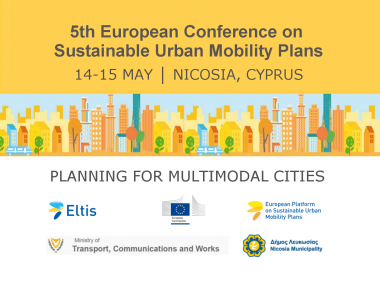CityMobilNet’s tools to get work on your SUMP done on the ground
Edited on
24 April 2018During the last 2 years, CityMobilNet experimented with tools of various nature for their use in an SUMP development process. Some where helpful for the immediate tasks at stake, some for making selections, some for gathering knowledge, some for exchanging among stakeholders and some for connecting to further effects. At the upcoming 5th European Conference on Sustainable Urban Mobility Plans, we will showcase some of these tools and how they are used in our workshop “tools to get work on your SUMP done on the ground”.

Thanks to the tools learnt at the URBACT Summer University right at the start of CityMobilNet’s 2-year journey as well as tools brought in during the network life time, we were able to place our first steps at a sound basis:
The Problem Tree: what we learnt there is that identifying the actual problem and its causes is not that easy at its seems by applying the problem tree to our situation. Many things that we considered to be the problem itself, turned out to be effects of underlying causes. But it is the causes we need to tackle to deal with the effects.
Knowledge exchange markets: Once knowing the problems and its causes, our task was to exploit the knowledge and experiences at hand in our partnership and outside of it. The knowledge exchange market in the style of a Given/Taken matrix supported us in getting an overview on what we and others know and which of the aspects are of special interest to us – collectively and individually.
OPERA: Then, looking to what kind of solutions might be applicable, the challenge was to come to a clear list of options from a myriad of proposals. Here, the OPERA mechanism catching the many ideas of the stakeholders and filtering them to conclude the most relevant to the group proved very helpful.
Silent whispers: knowing the options to choose does not mean knowing how to do it. Adapting the child’s game “Silent Whispers” – well known to literally all of us – proved very effective to gather many ideas to each participant’s problems by passing by the challenge one-by-one in a circle of problem holders getting advice and ideas from all participants to the own problem in a short time.
Card Game “From actions to impact”: knowing about the measures we plan to implement, checking their actual impact and how to measure it was the topic of a Card Game invented by the URBACT MAPS network. Comparing the actions against a set of possible impact cards and jointly discussing to which changes the actions will was a great success in widening the own perspective and getting a clue on how to measure the impacts concluded, as well.
These five tools are just a few among the tools we used with others such as TV shows as discussion models, COCD sessions for analysing the problem in the widest possible context and narrowing it then to the most relevant aspects, Story Telling as a powerful tool to create measures and communicate them as well or role plays to forecast possible conditions in local group work.
We cordially invite you to take part in the 5th European Conference on Sustainable Urban Mobility Plans and especially our workshop at the conference Monday afternoon at 16:30!
The conference takes place 14th – 15th of May 2018 in Nicosia, Cyprus and expects more than 400 participants all keen on exchanging knowledge and latest developments on Sustainable Urban Mobility Plans. Stay tuned to the conference here.
Submitted by Olaf Lewald on
